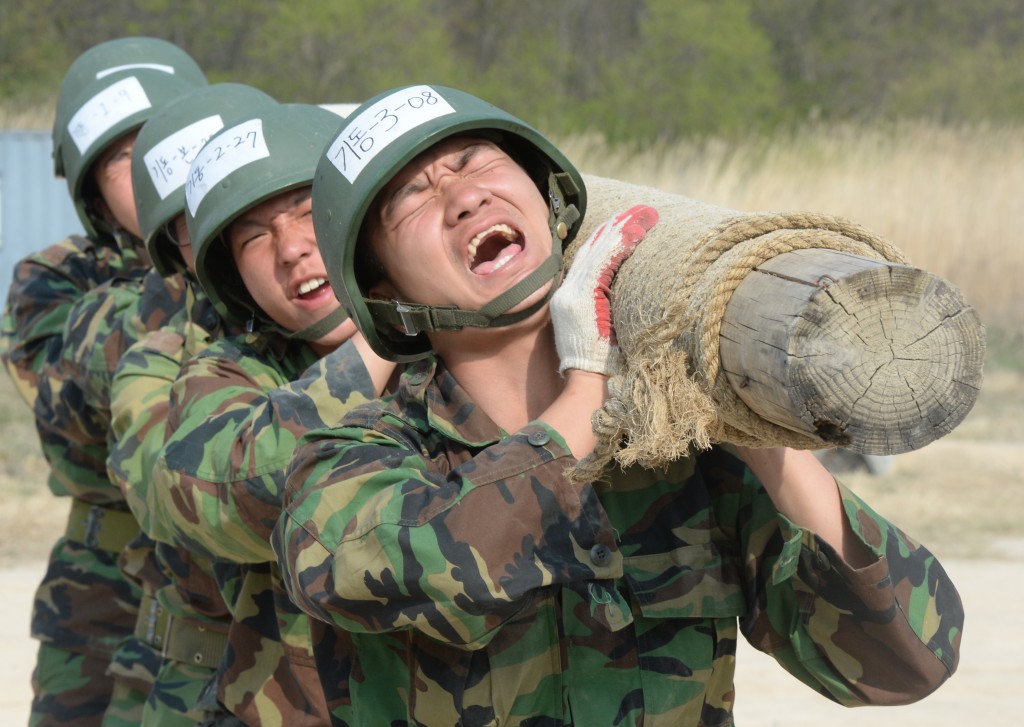- California Assembly OKs highest minimum wage in nation
- S. Korea unveils first graphic cigarette warnings
- US joins with South Korea, Japan in bid to deter North Korea
- LPGA golfer Chun In-gee finally back in action
- S. Korea won’t be top seed in final World Cup qualification round
- US men’s soccer misses 2nd straight Olympics
- US back on track in qualifying with 4-0 win over Guatemala
- High-intensity workout injuries spawn cottage industry
- CDC expands range of Zika mosquitoes into parts of Northeast
- Who knew? ‘The Walking Dead’ is helping families connect
Know your dual citizenship status before visiting Korea
Korean American men who did not renounce Korean nationality
may still have an obligation to complete military service in Korea
By Kim Chul-soo
Men with dual citizenship in the U.S. and South Korea may have an obligation to complete military service in South Korea after a prolonged stay of more than 90 days.
Kim, 21, was born between a father doing study abroad in the U.S. and a mother with U.S. residency, which gave him dual citizenship.
Last year, he visited Korea for the first time with a U.S. passport and received a warning after he stayed with his grandfather’s home for 100 days, 10 more than the 90 days usually allowed for those without visas.
“I didn’t know that I had dual citizenship and so did not renounce my Korean citizenship, but it was confirmed that my grandfather had registered my birth. I was told that I’m now considered as such,” Kim said. “I want to visit Korea again during summer vacation and asked the Consulate-General about it, but my visa was denied because of my dual citizenship. I’m trying to figure out what to do.”
Current Korean laws dictate that men with dual citizenship must renounce their nationality within three months of turning 18 years of age. If not, they cannot renounce nationality again until 38 years of age.
Korean American men with dual citizenship who want to travel to Korea have been asking about the possibility of needing to complete military service, the Korean Consulate-General in Los Angeles said on Thursday.
“Queries about military service and other issues related to citizenship have been continuously coming in from those with dual citizenship now that summer break is coming up,” said Kim Hyun-chae, judicial consul of the Consulate-General. “Most of them are Korean men with dual citizenship who missed filing for renunciation of nationality.”
According to current laws, those born with dual citizenship who follow the 90-or-less days rule for visiting Korea without a visa with a U.S. passport are exempt from examination, but those who overstay are managed as dual citizens by immigration services.
“For men born with dual citizenship who missed filing for renunciation of nationality, receiving an overseas travel permit is essential for entering Korea,” said Yang Man-ho, a military consul with the Consulate-General.
For those who live in a foreign country and whose parents have foreign citizenships, military service can be pushed back to age 37 if they receive an overseas travel permit before Jan. 15 of the year they turn 25 years old, he said.
“But even after getting the permit, they will be subject to military service if they stay in Korea for more than six months or get a job there,” Yang said. “In the case of those studying in Korea, military service does not apply during the period of study, but if parents or the spouse stay in six months or more in one year, military service can be imposed.”

















Pingback: Increasing number of Korean Americans renounce S. Korean citizenship – The Korea Times